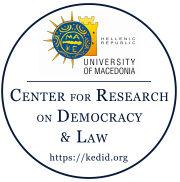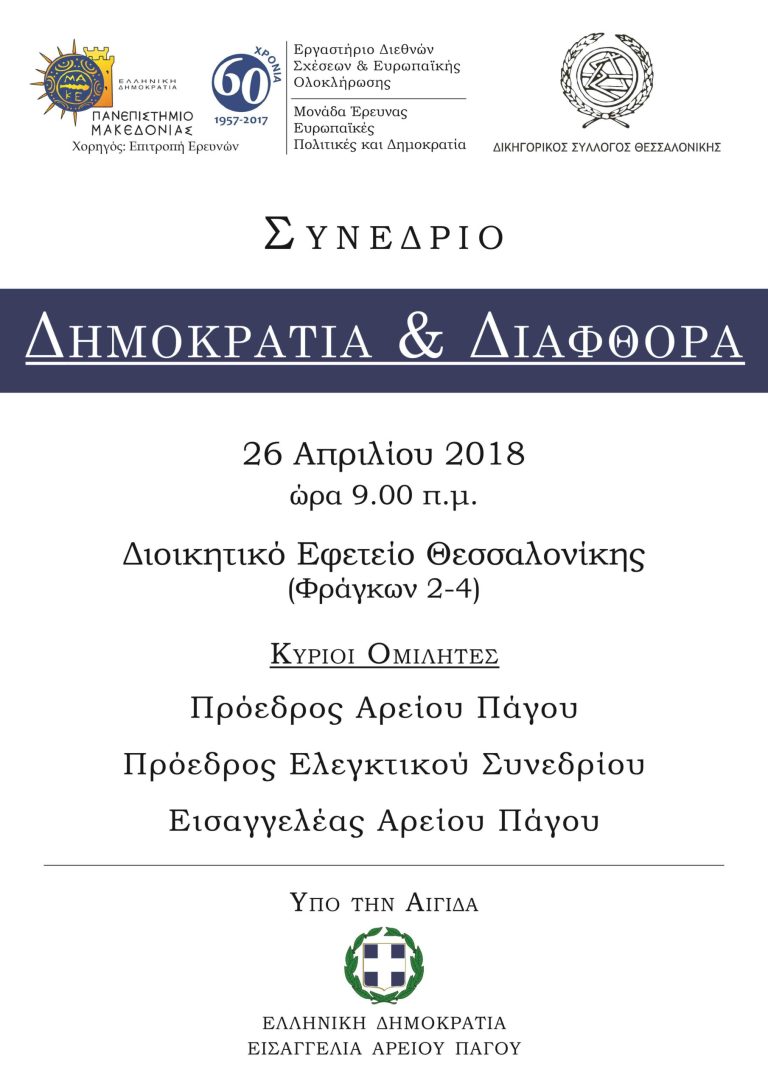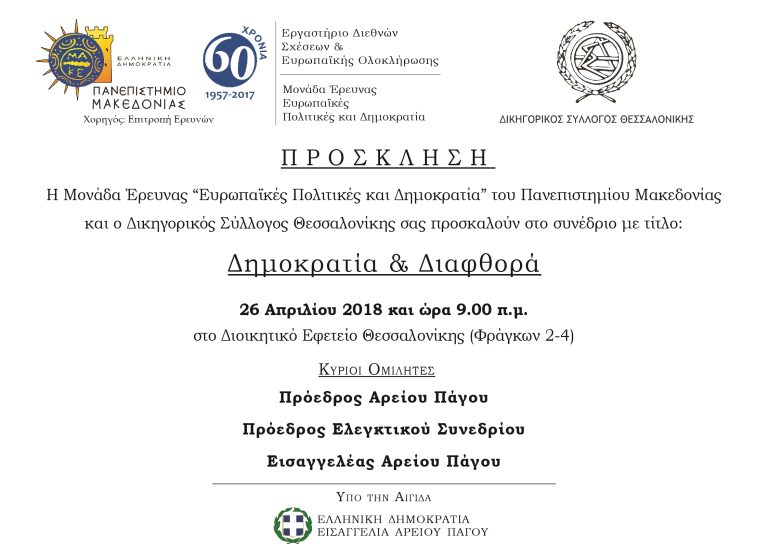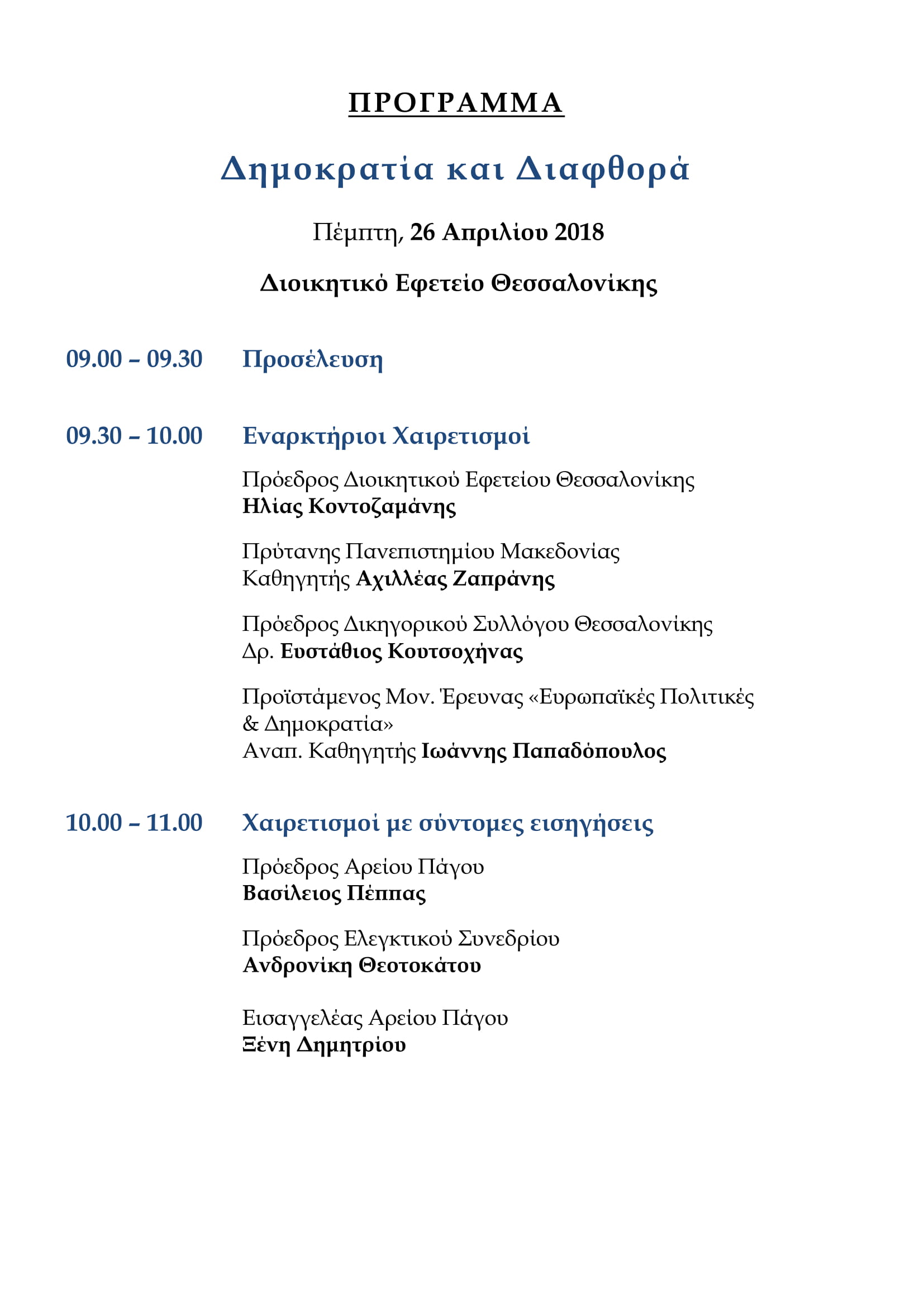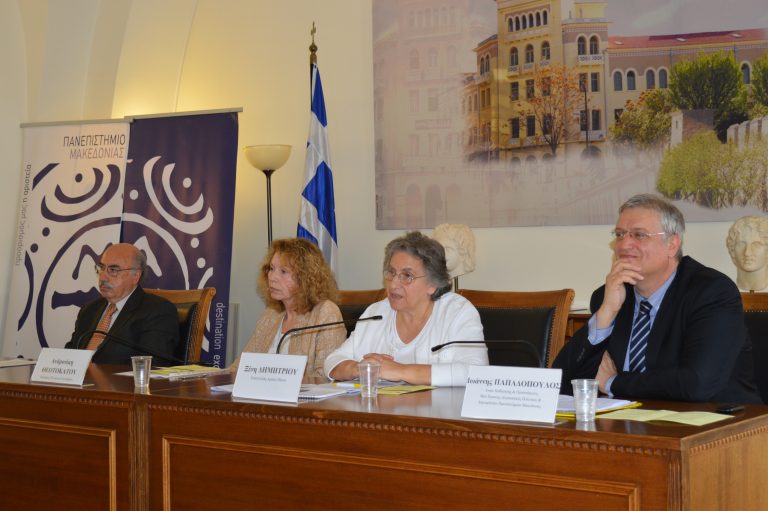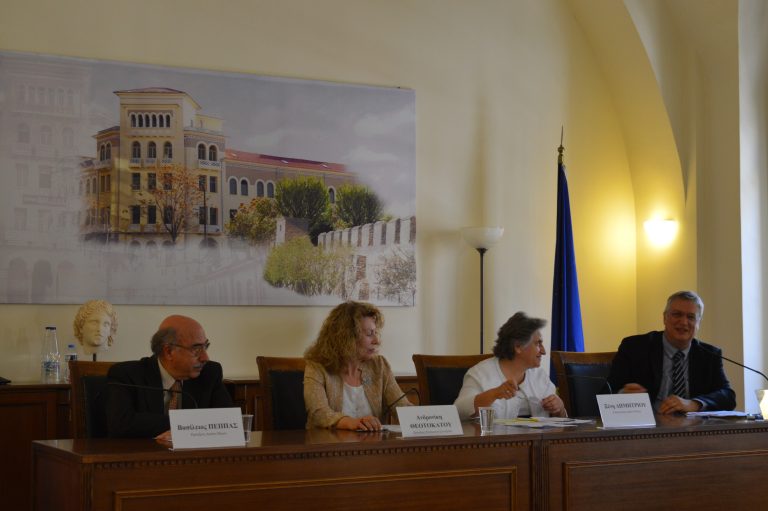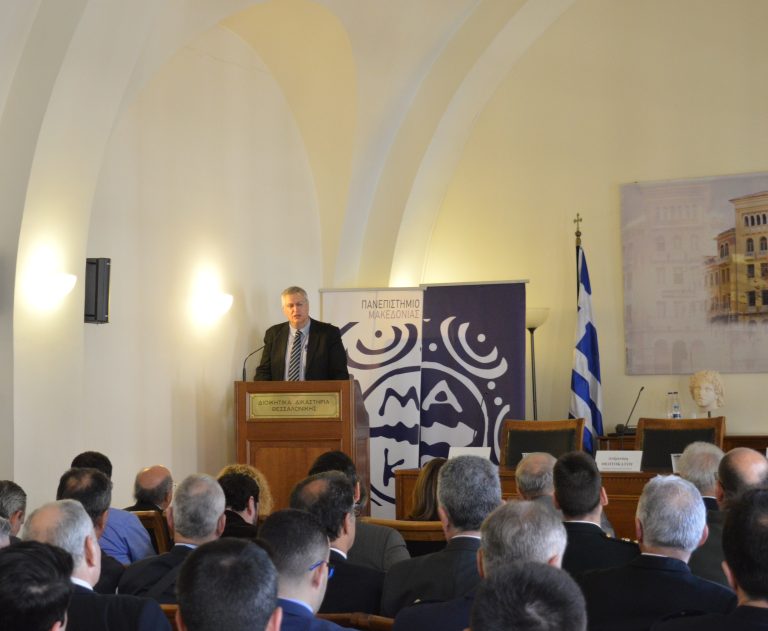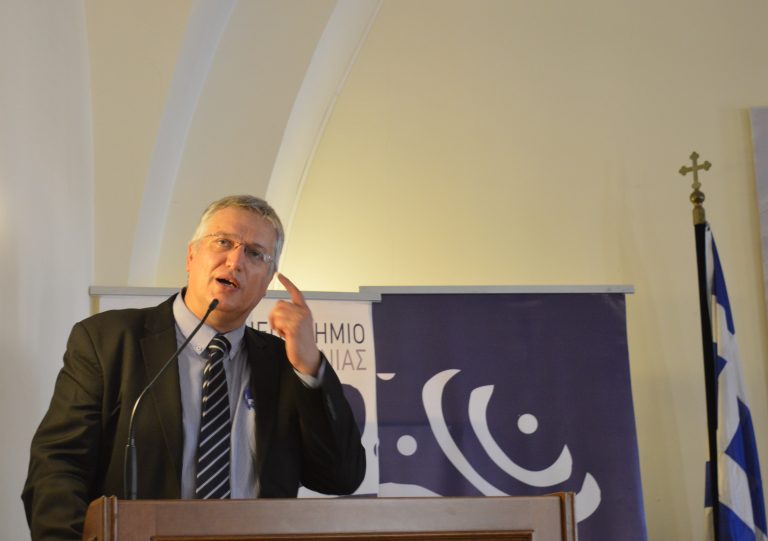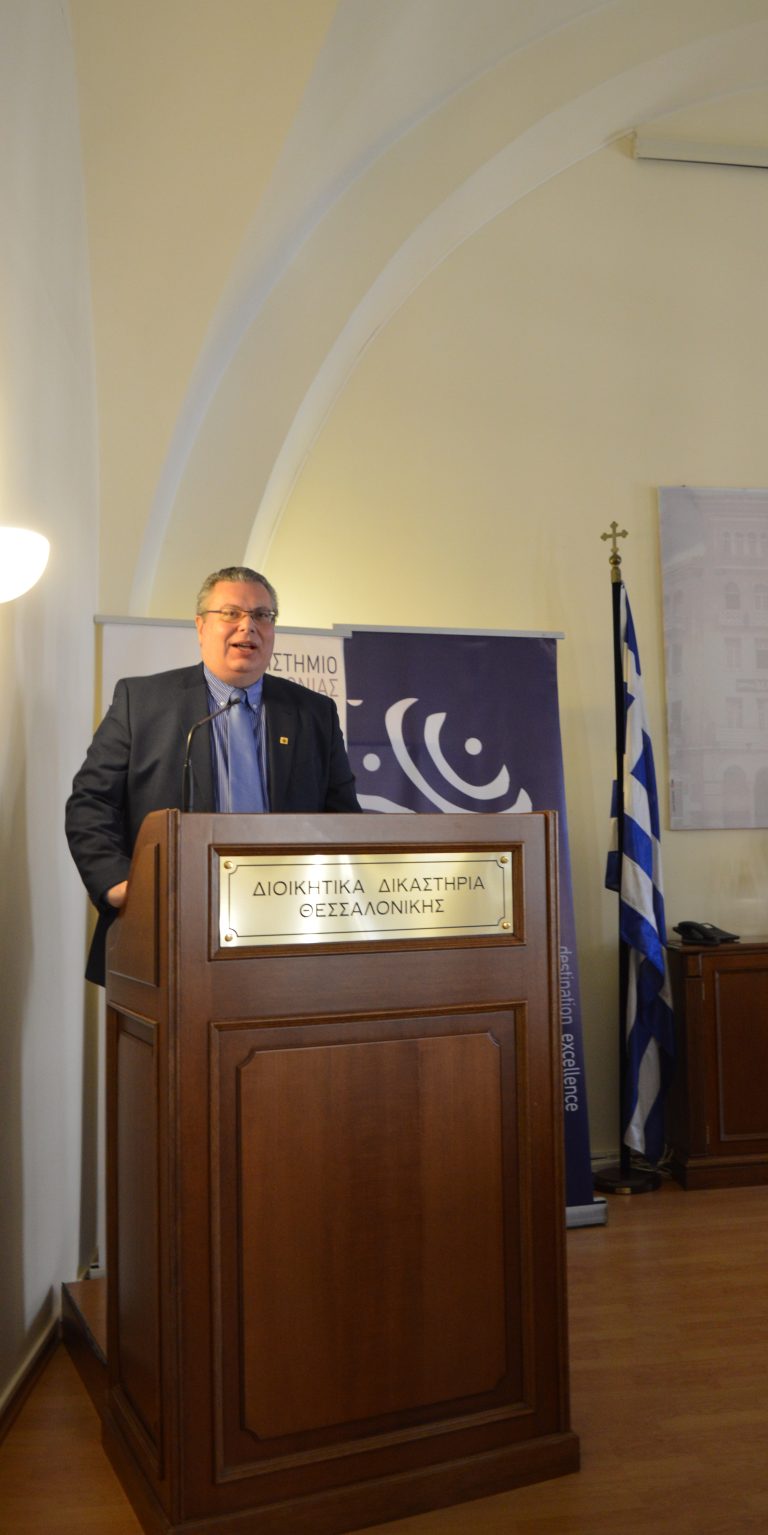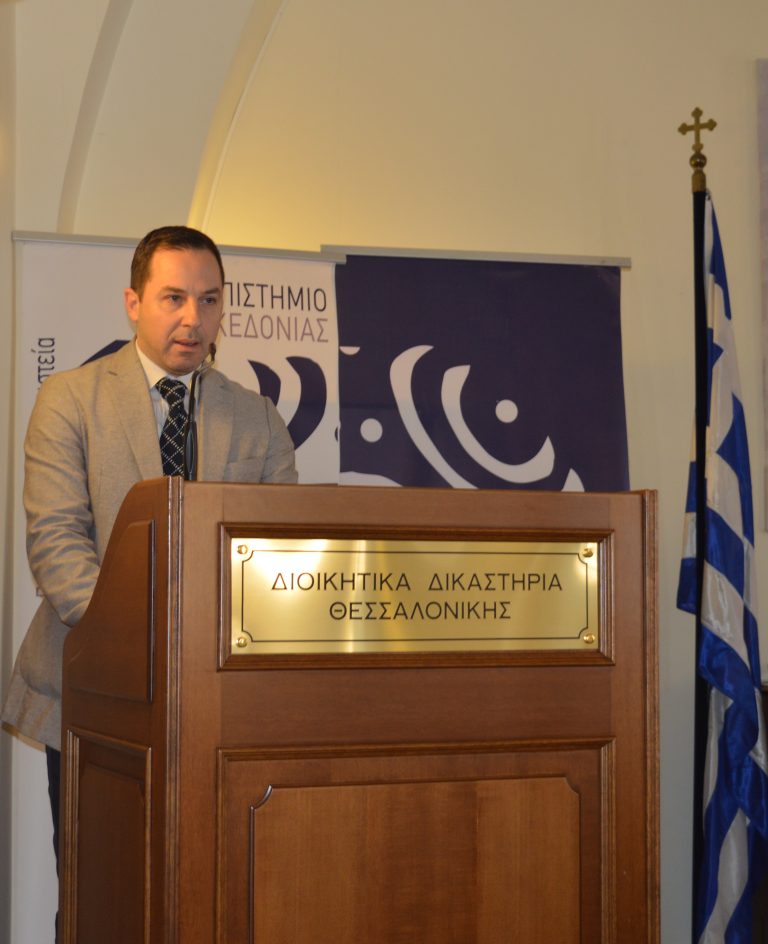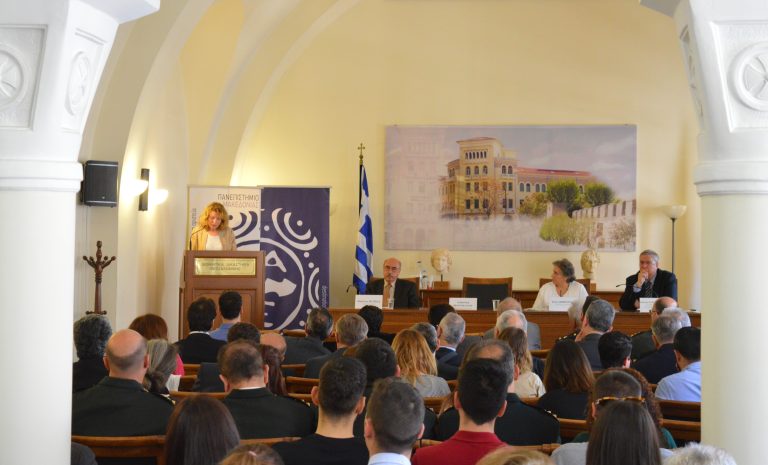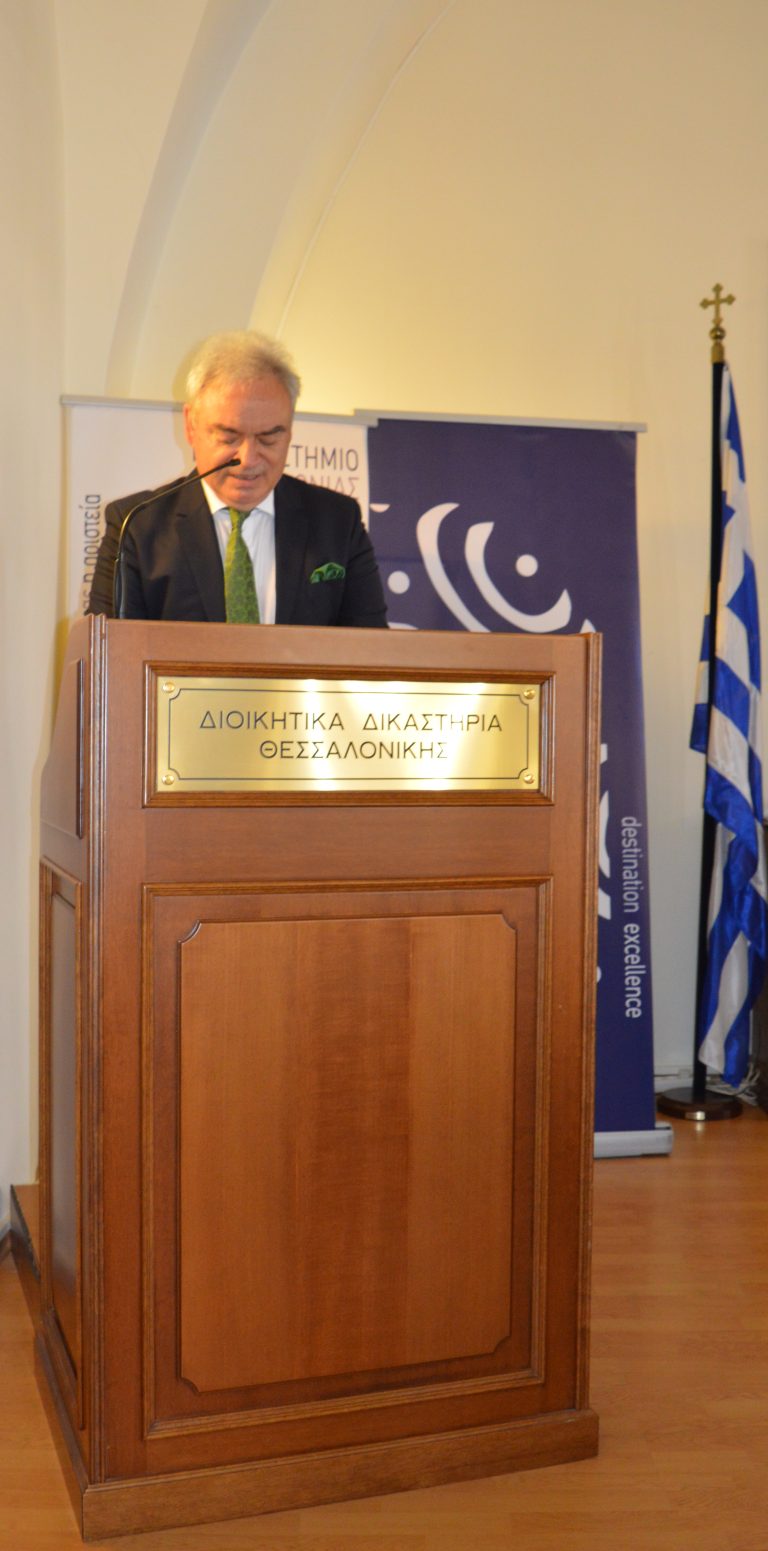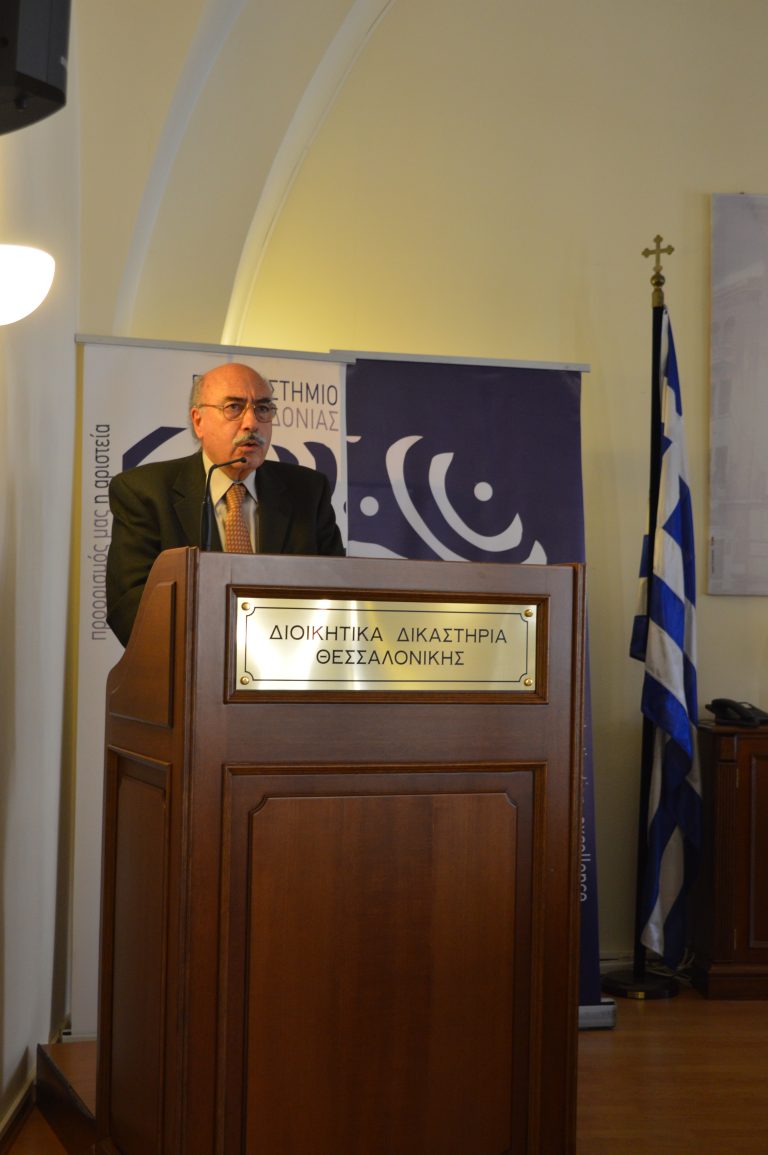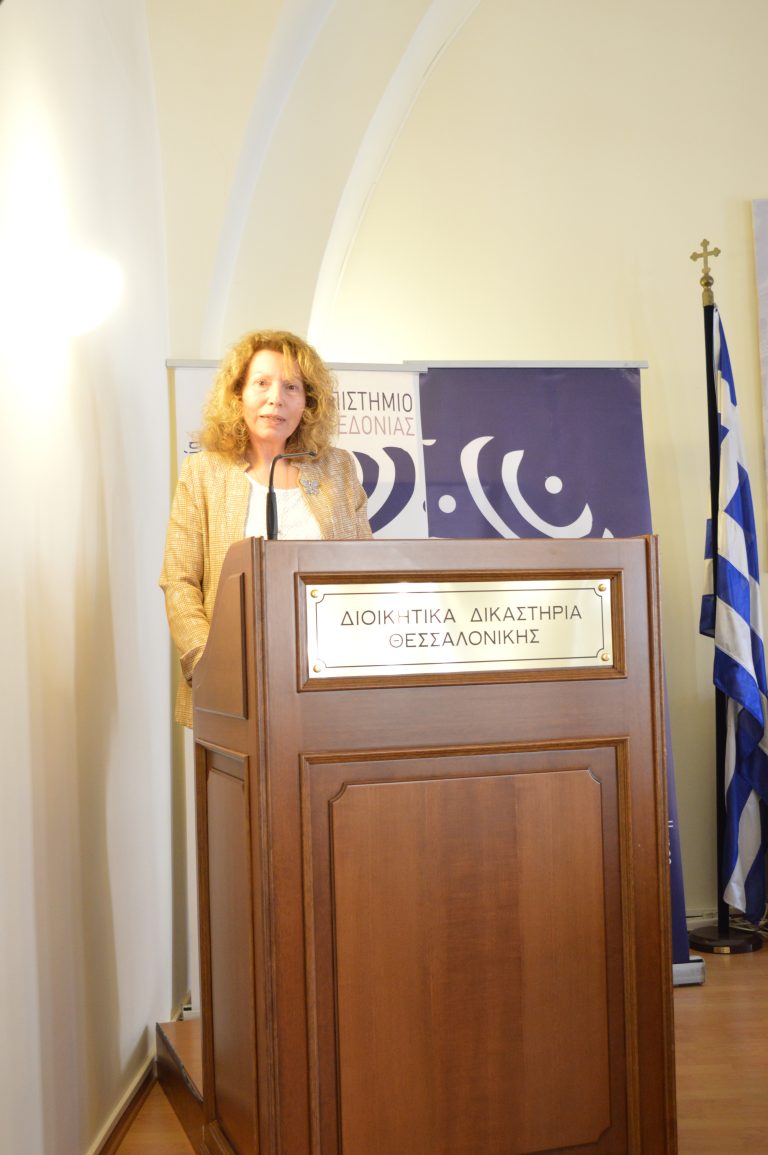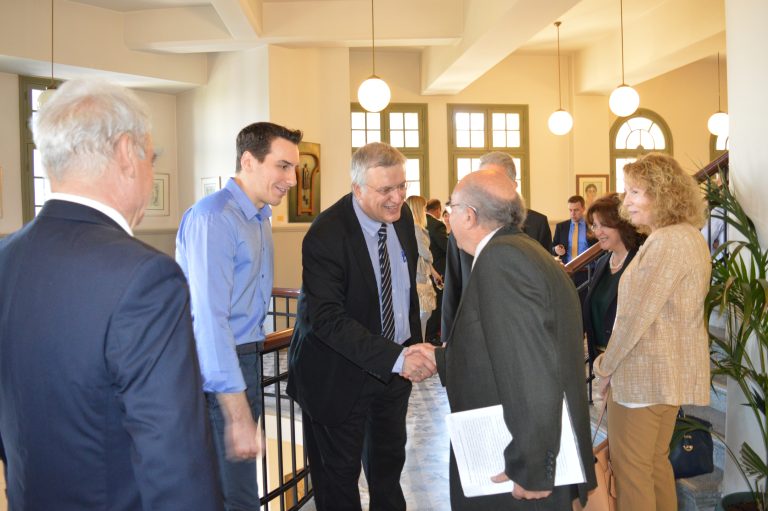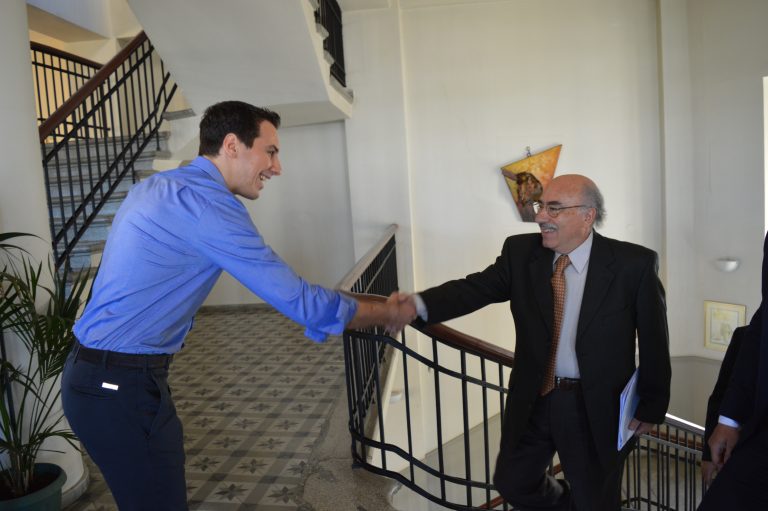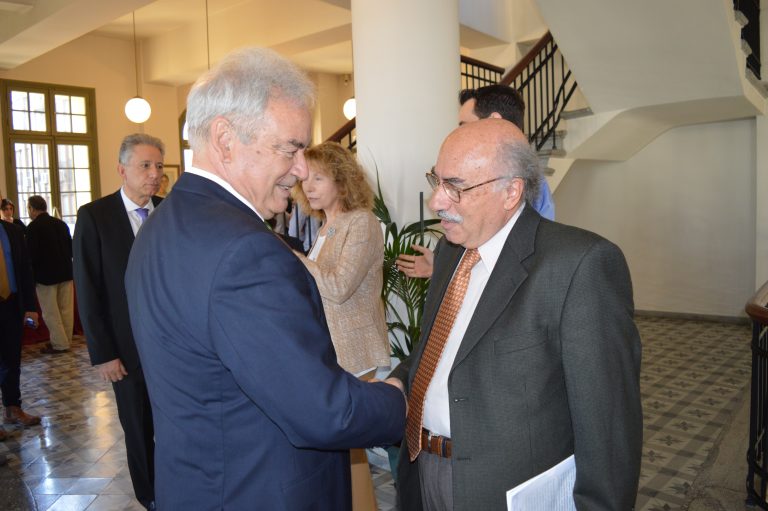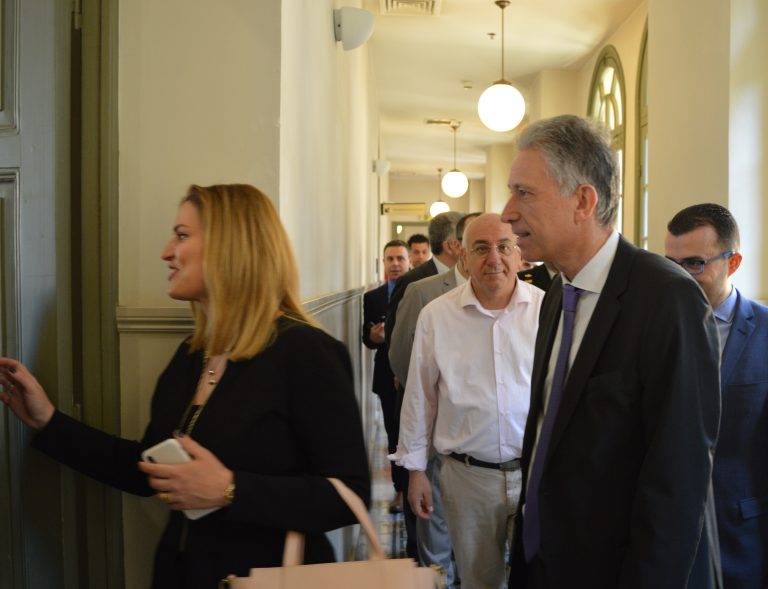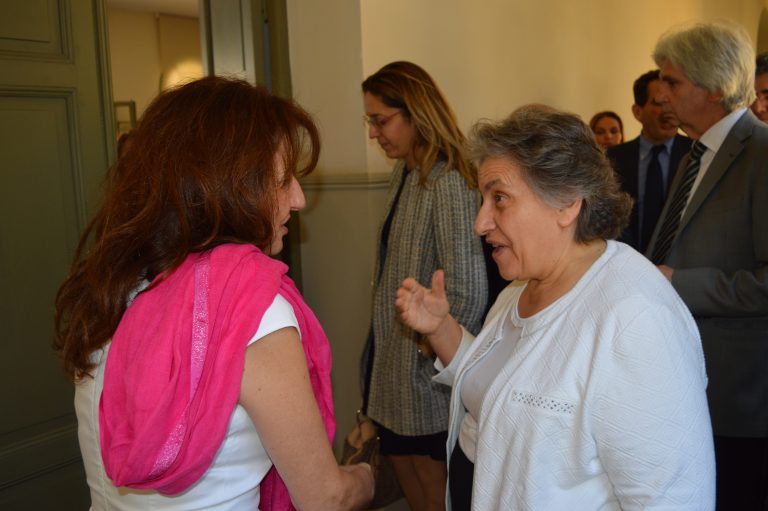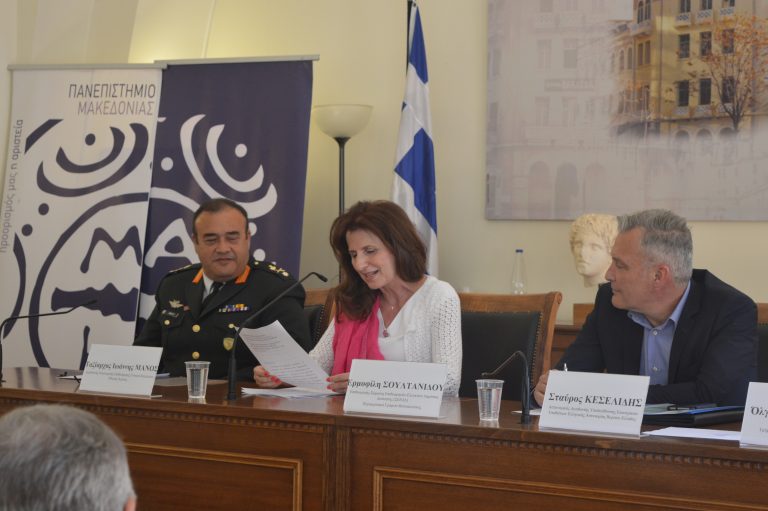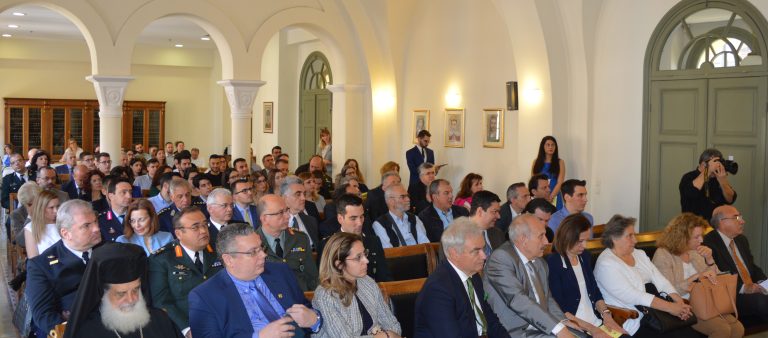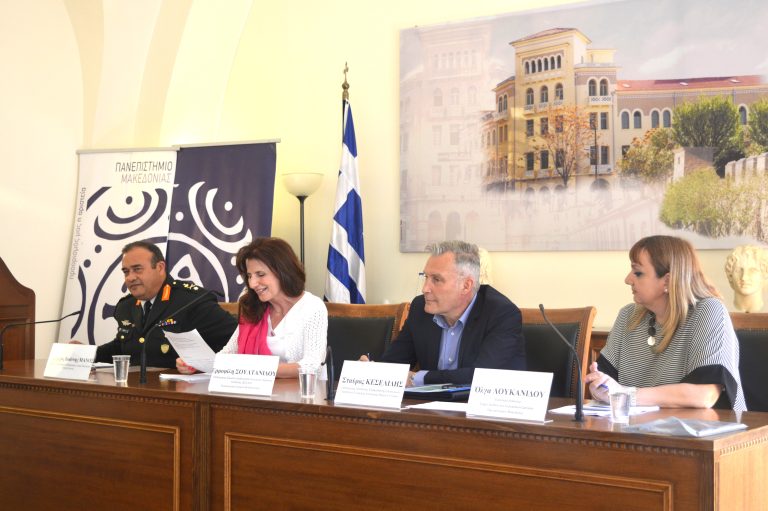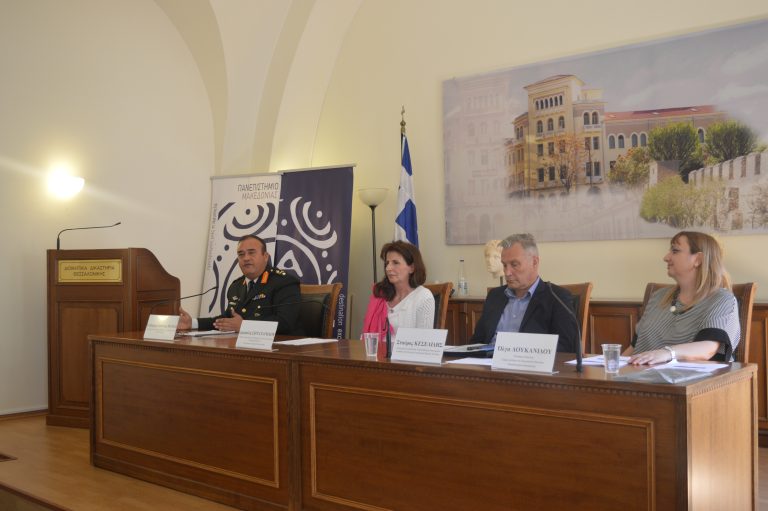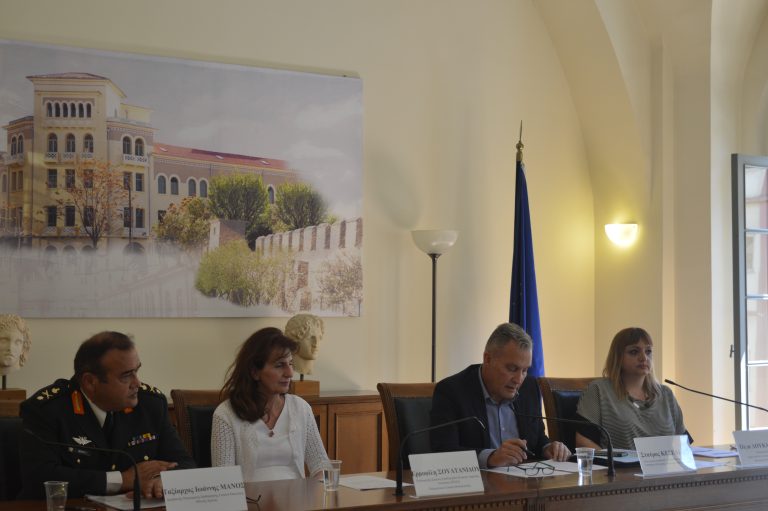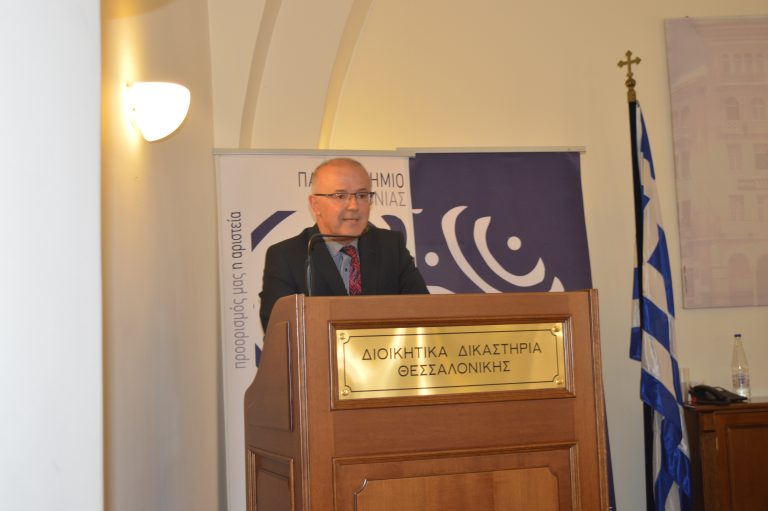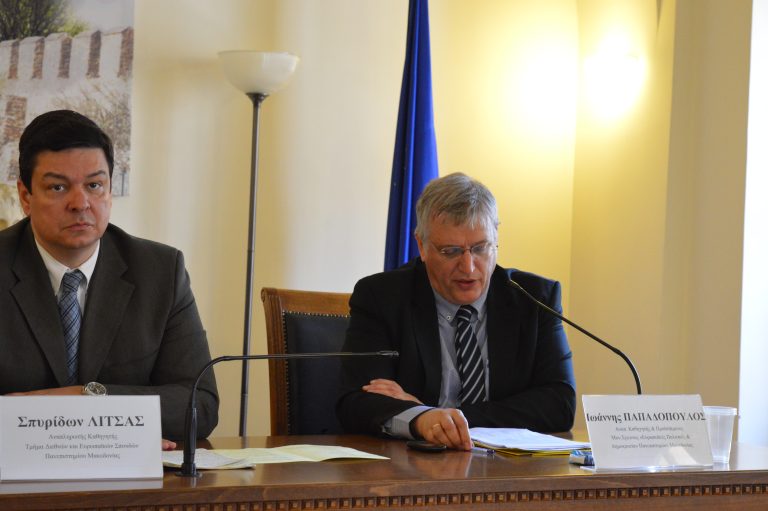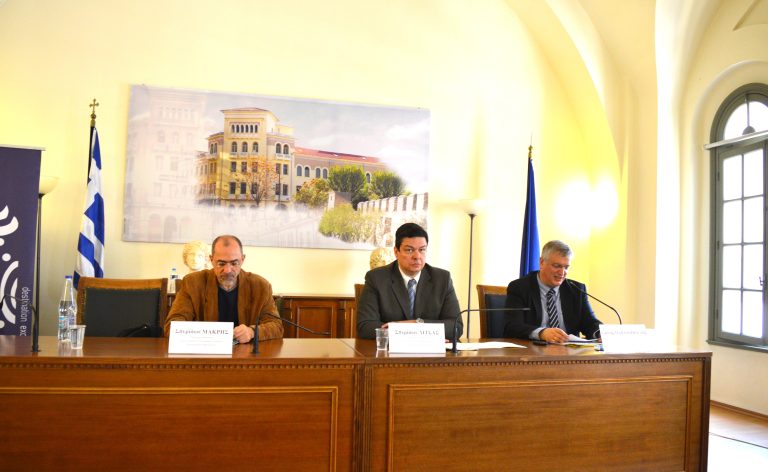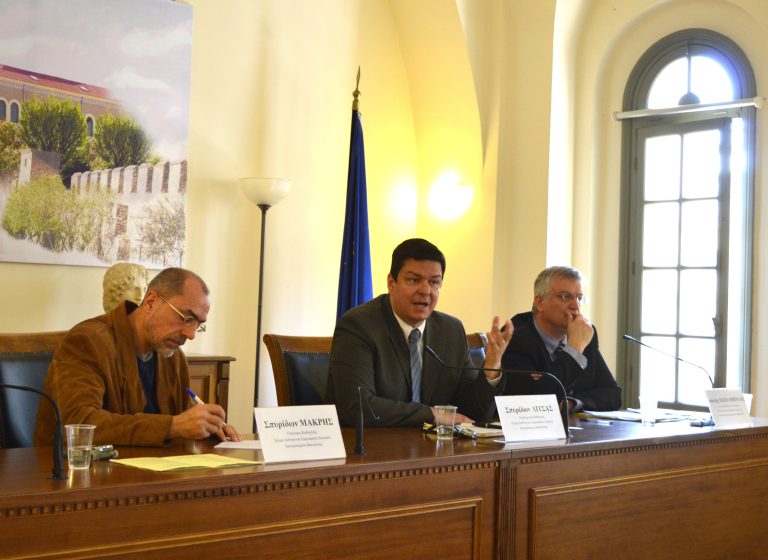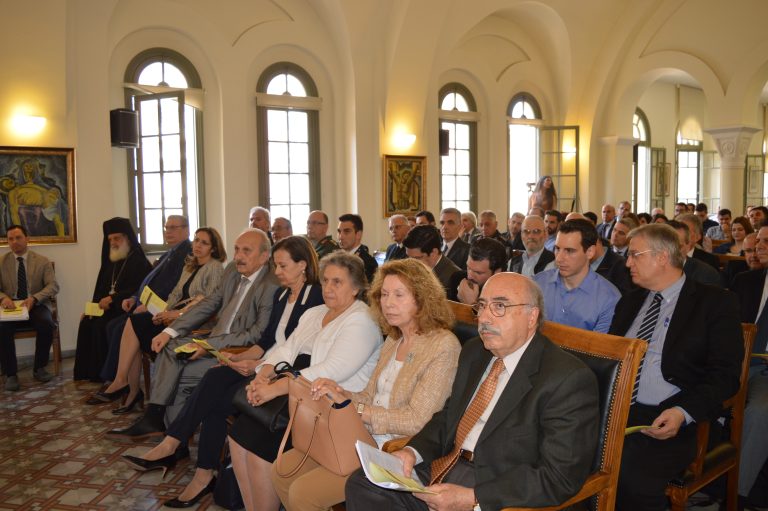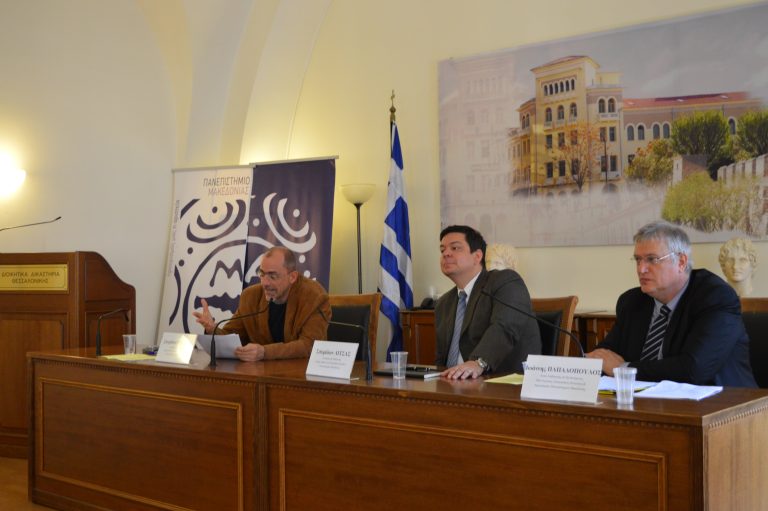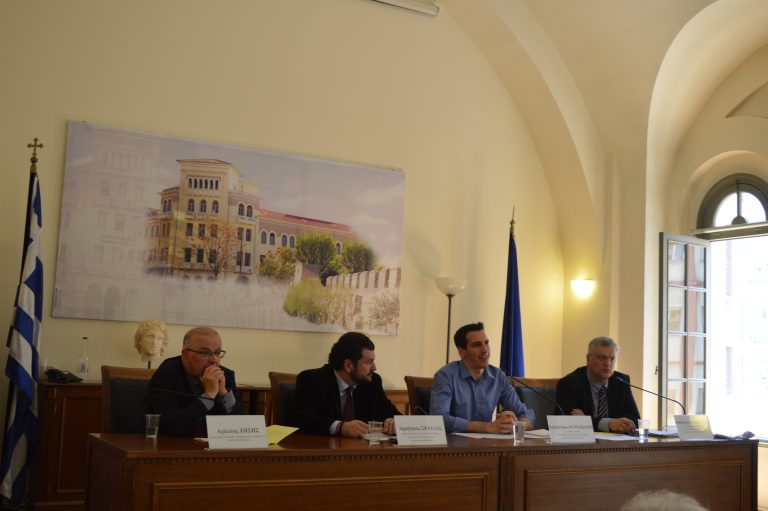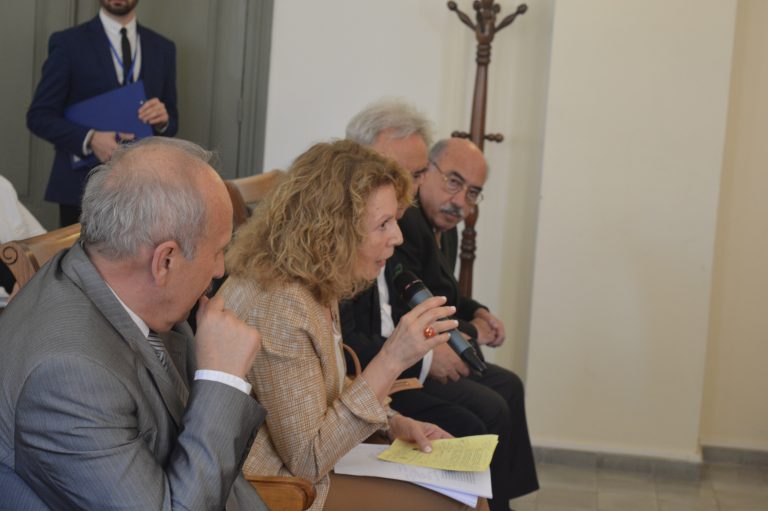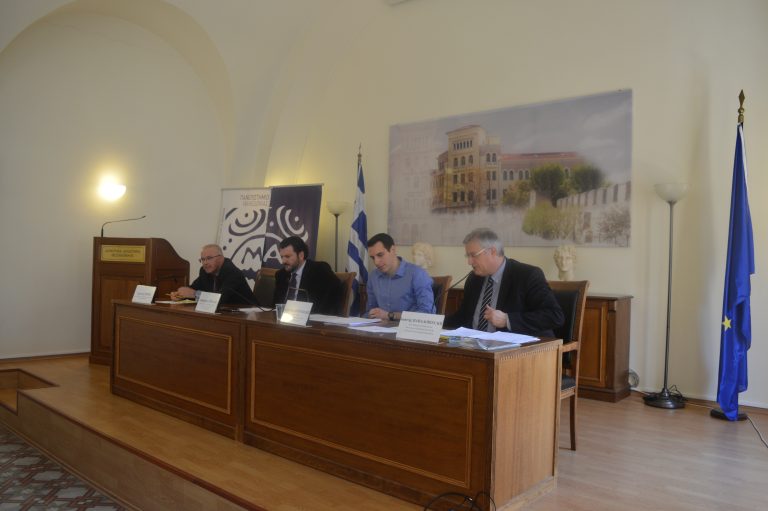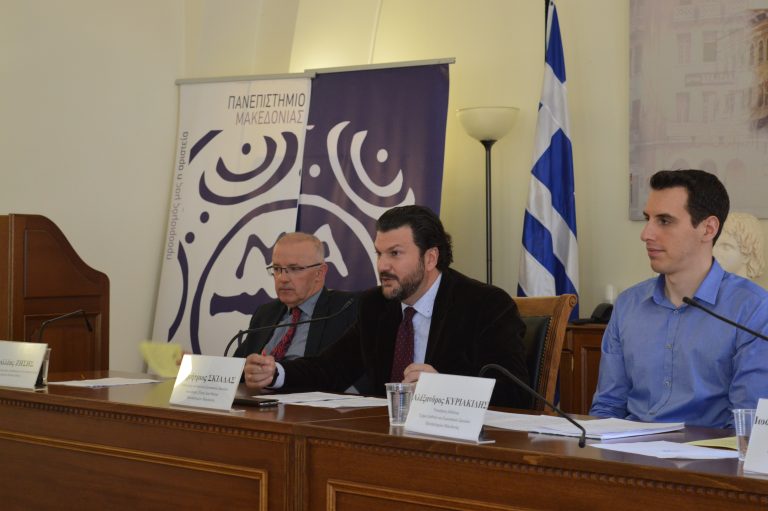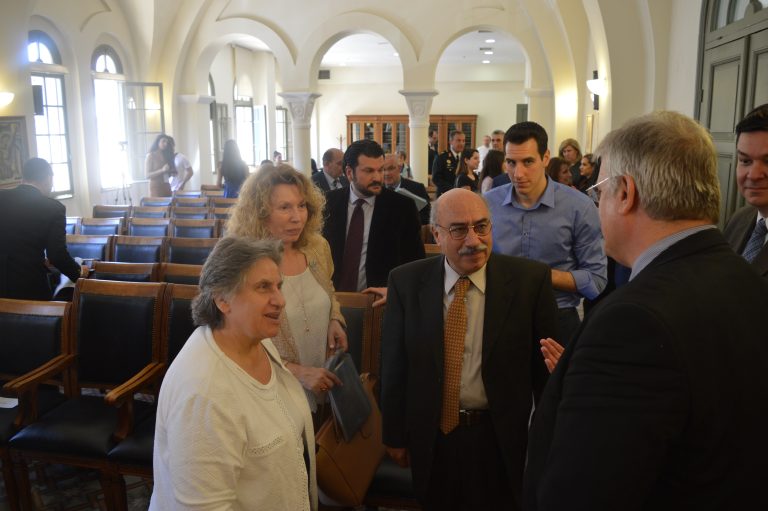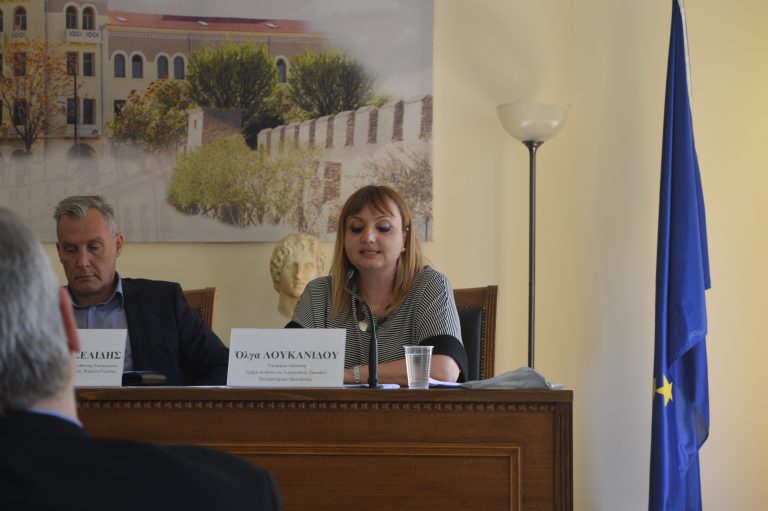A significant action of the Research Unit “European Policies and Democracy” (the predecessor of CEDLAW) for the first semester of 2018 was the organization of the conference “Democracy and Corruption” with keynote speakers the Hon. Chief Justice of the Supreme Court of Greece, Vasileios Peppas, the Chief Justice of the Court of Auditors, Androniki Theotokatou, and the Chief Prosecutor of the Supreme Court of Greece, Xeni Dimitriou, in cooperation with the Thessaloniki Bar Association under the auspices of the Chief Prosecutor of the Suprembe Court, which was held at the Administrative Court of Appeals of Thessaloniki on Thursday, April 26, 2018.
Academics from the Department of International and European Studies of the University of Macedonia also presented papaers at the conference on theoretical issues: Associate Professor and Head of the Research Unit Ioannis Papadopoulos, Professor Dimitrios Skiadas, Associate Professor Spiridon Litsas, Assistant Professor Spiridon Makris, PhD Candidate and Administrator of the Research Unit Alexandros Kyriakidis, and PhD Candidate Olga Loukanidou. On practical approaches, presenters included the Prosecutor Against Corruption of Thessaloniki, Achilleas Zisis, the Head of Financial Audit devision of the Hellenic Army, Brigadier General Ioannis Manos, the of the Director of the Northern Greece Division of Internal Affairs of the Hellenic Police, Stavros Keselidis, and the Inspector – Controller of the Inspectors – Contollers Body for Public Administration at Thessaloniki, Ermofili Soultanidou.
The event was coordinated by the Head of the Research Uni, Associate Professor Ioannis Papadopoulos, and the President of the Administrative Court of Appeals of Thessaloniki, Elias Kontozamanis, while the Rector of the University of Macedonia, Professor Achilleas Zapranis, and the President of the Thessaloniki Bar Association, Mr. Efstathios Koutsochinas, gave welcome addresses. The coordination of the organization of the event was carried out by the Head for Operations and Research, PhD candidate Alexandros Kyriakidis.
The Chief Justice of the Supreme Court of Greece, Vasileios Peppas, pointed to the negative relationship between democracy and corruption, mentioning the principle of legality, criminal justice, free press, international cooperation and the tackling of personal indifference to corruption as means of tackling corruption
The Chief Justice of the Court of Auditors, Androniki Theotokatou, stressed that the global phenomenon of corruption is inevitable and pointed out that it affects the economic development and the foundations of democracy – specifically, social justice and the rule of law. She also highlighted the factors that intensify corruption and the ways of dealing with it, describing the phenomenon of corruption from the perspective of Greek citizens. The Chief Prosecutor of the Supreme Court, Xeni Dimitriou, highlighted the role of Universities in combating the phenomenon of corruption, while at the same time claiming that democracy and corruption cannot coexist. In addition, she mentioned that corruption entails economic, social and political costs and pointed to the action of the Supreme Court Prosecutor’s Office in the fight against corruption issues.
Accosiate Professor and Head of the Research Uni, Ioannis Papadopoulos, analyzed the phenomenon of corruption through the juxtaposition of the two main philosophical waves: republicanism and liberalism. In this context, he presented the main characteristics of these approaches, the ways of combating corruption supported by each of them, examining the phenomenon through administrative law and science.
Professor Dimitrios Skiadas presented the concept of corruption, its definition and types, and focused on the European Union’s relationship with this phenomenon. In particular, he stressed the Union’s arrangements and shortcomings, enriching his intervention with statistical data that he provided, juxtaposing them to those of Greece. Associate Professor Spyridon Litsas approached the phenomenon of corruption historically, emphasizing the dimension of the concepts of rapture and animus dominati from pre-modernity to present. Assistant Professor Spyridon Makris quoted a Republican reading of the phenomenon of corruption, referring to the philosopher Hannah Arendt, the Cambridge school of thought, and Niccolò Machiavelli. At the same time, he pointed out the importance of citizens’ partaking in the decision-making making process, analyzed the concept of state virtue and concluded with the key differences between Republican and liberal theory.
PhD Candidate and Administrator of the Research Unit, Alexandros Kyriakidis, analyzed the phenomenon of corruption starting from ancient Greece and the individual approach of Aristotle and Plato, and concluding with the modern view and social dimension of the phenomenon, making a descriptive reference to the current perception of it. PhD Candidate Olga Loukanidou presented a series of data and contemporary perceptions with regards to corruption, drawing from the reports of International Organizations, and concluded by focusing on the management of corruption by the Directorate-General for Financial Controls in the context of her personal experience.
The Prosecutor of Corruption of Thessaloniki, Achilleas Zisis, defined the phenomenon of corruption and examined its consequences on democracy, stressing that it is a threat to the functioning of the political system. Then, he examined its consequences, namely the extreme economic liberalism and the weakening of moral values that undermine citizens’ confidence in institutions and threaten the foundations of democracy: democratic principle, the rule of law and human rights. The Head of Financial Audit devision of the Hellenic Army, Brigadier Ioannis Manos, referred to greed, material and moral poverty, and power as the main instigators of the phenomenon of corruption, and he then highlighted its impact on the armed forces by emphasizing the dilemma of human life and describing cases of corruption and their treatment referring to his personal experience.
The Director of the Northern Greece Division of Internal Affairs of the Hellenic Police, Stavros Keselidis, gave a speech titled: “The contribution of the Internal Affairs Service of the Hellenic Police to the fight against corruption”, during which he presented the Directorate of Internal Affairs of the Hellenic Police emphasizing the way in which it works and its legislative framework, as well as the means and mechanisms at its disposal to combat the phenomenon of corruption. The Inspector – Auditor of the Inspectors – Contollers Body for Public Administration at Thessaloniki, Ermofili Soultanidou, described the functioning of the Inspectors-Contollers Body for Public Administration, listing the responsibilities, challenges, and limitations that the agency faces in carrying out its work. At the same time, she pointed out the individual challenges that each of the Inspector-Auditors has to manage, referring to personal experiences, as well as the individual responsibility for carrying out the task each Inspector-Auditor has undertaken.
The event was attended by a number of officials, such as members of the Greek Parliament, members of the European Parliament, the Presidents of the Court of Appeal and the Administrative Court of Appeal of Thessaloniki, representatives of the Church of Greece, etc. Driven by the occasion of the event, the Head of the Unit, Assoc. Prof. Ioannis Papadopoulos, had the chance to present the Unit on “Polis, Politis, Politiki” of TV100 Channel, and the Administrator, PhD Candidate Alexandros Kyriakidis, on the show “epiKOINONIA” of the nation-wide ERT3 station.
